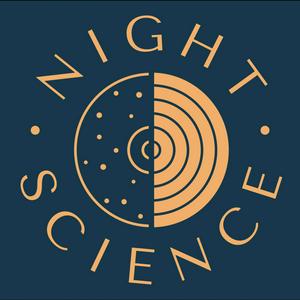It’s surprising that for centuries, scientists have left the study of how to do science largely to non-scientists. Not anymore – thanks to the young field of cognitive epistemology. In this episode, we discuss the exciting – and surprising – science of doing science with Marina Dubova, a postdoc at the Santa Fe Institute and soon a professor at UC Berkeley. Marina found, for example, that to get the most powerful theories, you should not plan the collection of data with a view to falsify or validate existing hypotheses; instead, try to get as diverse a dataset as possible. It adds a new angle to an idea that we discussed in many previous episodes: that discoveries often arise from exploratory data collection. Based on Marina’s research and her own process, we also discuss how science thrives on diversity at all levels – data, ideas, questions, scientists – and on the use of analogies and metaphors.
The Night Science Podcast is produced by the Night Science Institute. For more information on Night Science, visit night-science.org .


